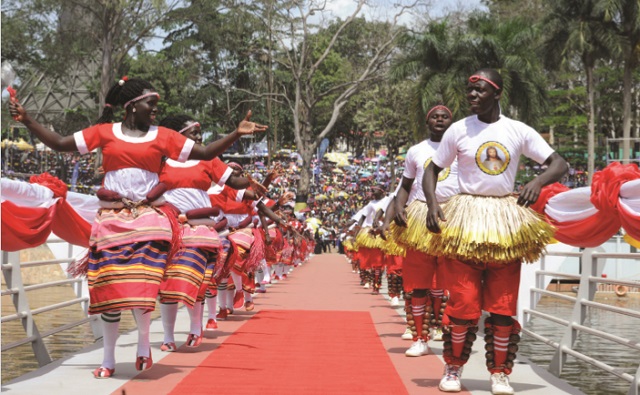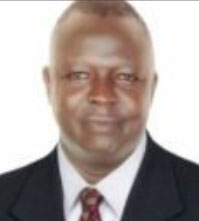
How Martyrs’ Day June 03 and the life in Uganda today mirror the dark old days of Kabaka
COMMENT | ANDREW DAVID OMONA | Martyrs’ Day in Uganda commemorates the bold decision of some early converts to Christianity to give up their lives for the sake of the gospel. The day, marked on 3 June every year since the 1920s, is therefore a pivotal celebration in the life and history of Christianity in Uganda.
The story begins farther back in 1875 when the British-American explorer Henry Morton Stanley arrived in the court of the Kabaka Mutesa I in Munyonyo (outskirts of Kampala). The Kabaka, or king, warmly welcomed him as a new ally of his Buganda kingdom (in central Uganda) and an opportunity to face off Egyptian and Sudanese threats.
Indeed, during his month-long stay, Stanley proved a good ally by aiding the Kabaka in the battles against the autonomous Vumma of Buvumma Island on Lake Victoria, using his firearms. The display of firepower deeply impressed Mutesa, who, at the time, feared an invasion by Egyptian and Sudanese forces north of his kingdom. Though not a missionary, Stanley taught the Kabaka some rudiments of Christianity, while discrediting Islam. He proposed that Mutesa should invite Christian missionaries who would teach him and the people of his kingdom about the faith.
Mutesa enthusiastically accepted the idea, believing that more foreigners in his kingdom would add significantly to the firepower he was getting from Arab traders – mainly arms and gun powder.
In 1875, Stanley wrote an open letter in the name of Kabaka Mutesa, inviting Christian missionaries to the Kingdom of Buganda. Two missionary groups, the British Church Missionary Society and the French White Fathers, arrived in 1877 and 1879 respectively.
But their arrival did not settle the Kabaka’s anxiety and increasing sense of insecurity. Rather their arrival increased it. He now had four different competing groups to deal with: the traditionalists, the Muslims, and the two Christian groups.
The events that were to unfold over the next few years – including the death of Christians at the hands of Kabaka Mutesa’s son Mwanga – heralded major changes in the kingdom. These resulted in fault lines that continue to resonate today. These include tensions between the church and state as well as the church’s relationship with traditional beliefs and systems in the country.
The martyrs
The older chiefs didn’t want to lose power. Younger chiefs saw an opportunity to take more power, but were divided along religious lines. Some were Muslims, others Christians. Hundreds of the young converts of the new faith were drawn into the conflict.
It was in the midst of this tension that, in 1884, the young, inexperienced Mwanga succeeded his father Mutesa as the new Kabaka. Whereas Kabaka Mutesa was able to balance and contain the different rival groups by showing no preference, the young Mwanga did not have that tact. Strong factions within the court had aligned along the different religious lines and were ready to tackle him.
Mwanga lacked religious convictions and was alienated from the missionaries. To garner support against them, he ordered the execution of the first three Baganda Anglican Christians on 31 January 1885. This was supposed to be a warning to his subjects and the missionaries alike – a signal that he was still the sovereign of his kingdom.
But the number and staunchness of Christians kept increasing and they turned against their traditional customs.
Kabaka Mwanga felt the Christian faith might bring down the wrath of the ancestors on the kingdom. He turned to the traditionalists who had forecast the arrival of an invader from the east to “devour” Buganda.
He treated his Christian subjects with great cruelty, murdered the Anglican Bishop Harrington and after that shifted his wrath to young men who stayed in the king’s court – locally called pages. In all, at least 45 Catholics and Protestants were murdered between 31 January 1885 and 27 January 1887 through beheading, dismemberment, spearing, burning and castration.
The sacrifice the new converts made created impetus in many around the country to convert to the new faith.
The victims became known as the martyrs who are being remembered to date. Today, over 80% of the about 42 million people in Uganda are Christians.
Continuing relevance
The memorial takes the form of prayers, pilgrimage and singing praises. Other Ugandans use it as a time for merry making and business. Christians from further afield also travel to Uganda to join the memorial.
In Uganda today, the church still grapples with the adjudication of justice in the country. Like the martyrs who were not properly tried in court, Ugandans are imprisoned for flimsy reasons or without trial because others want to maintain the status quo. Examples include the state targeting critical journalists, civil society activists and opposition political leaders with “arbitrary arrest, intimidation, threats and politically motivated criminal charges”.
President Museveni says opposition are agents of foreign interests.
In the face of the current state in Uganda, the church still gives hope to the faithful. Just as the Christian hope of life after death was very strong in the mind of the martyrs, the church encourages the faithful not to give up in their socio-political and faith engagement. Given the church is everywhere in the country, every day of worship, church leaders meet the faithful to give them encouragement in times of despair.
The experience of the martyrs also reminds Ugandans of the relationship between Christianity and traditional religion. The church sometimes has the challenge of interpreting the gospel without destroying people’s norms and ethos, thus at times finding itself compromised in the process.
Just as the martyrdom was mainly the result of the political threat to the king at the time, so some Ugandan Christians find themselves caught up in political drama as they agitate for change. In such circumstances, the church is in an awkward position, having to decide who to support.
The other theme that echoes down the ages is that the martyrs were motivated by teachings they had adopted from outsiders. Today too the regime in power sees civil society organisations and opposition political parties as foreign agents whose agenda is to influence citizens against the government.
*****
 Andrew David Omona is Dean, School of Social Sciences, Uganda Christian University
Andrew David Omona is Dean, School of Social Sciences, Uganda Christian University
Source: theconversation
 The Independent Uganda: You get the Truth we Pay the Price
The Independent Uganda: You get the Truth we Pay the Price



